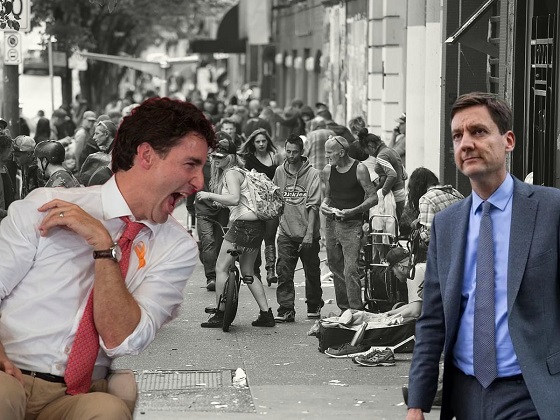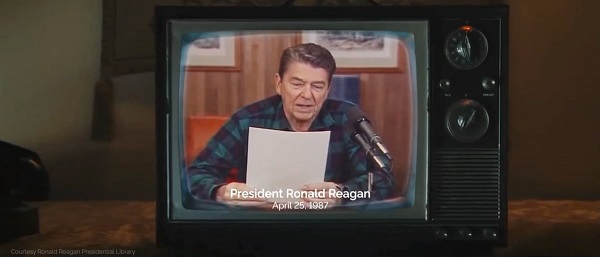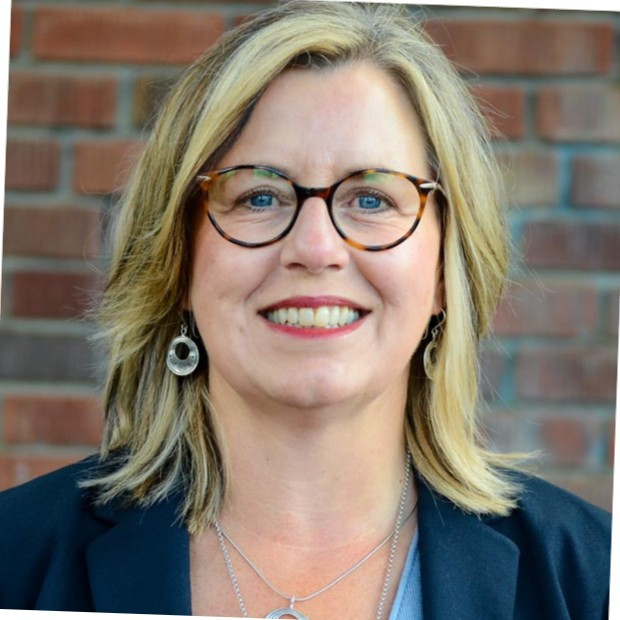Opinion
Fentanyl Fiasco: The Tragic Missteps of BC’s Drug Policy

From The Opposition News Network
|
|
Unmasking the Destructive Cycle of Drug Policy in British Columbia. A Tale of Good Intentions and Dire Consequences
My fellow Canadians, it’s been a challenging time. I had initially planned to bring you the latest spectacle from the House of Commons, featuring Kristian Firth, but fate had other plans. A personal emergency struck closer to home—a fentanyl overdose in the family. This tragic event threw us headlong into the chaotic circus that is the British Columbia health system. Let me be frank: the system is a mockery. The privacy laws that supposedly protect us also shroud our crises in unnecessary mystery. When my uncle was found unconscious and rushed to the ICU, the walls of confidentiality meant we could not even ascertain his condition over the phone. They notify you of the disaster but cloak its nature in secrecy. It’s an absurdity that only adds to the anguish of families grappling with the realities of addiction.
Now, let’s address the elephant in the room: our approach to drug addiction. The authorities label it a disease, yet paradoxically offer the afflicted the choice between seeking help and remaining in their dire state. This half-hearted stance on drug addiction only perpetuates a cycle of relapse and despair. As we speak, thousands tumble through the revolving doors of our medical facilities—5,975 apparent opioid toxicity deaths this year alone, an 8% increase from 2022. Daily, we see 22 deaths and 17 hospitalizations, and yet our response remains as ineffective as ever. This issue transcends our national borders. The U.S. has openly criticized China for its role in the opioid crisis, accusing it of flooding North America with fentanyl—a drug so potent, it’s decimating communities at an unprecedented rate. Just last year, over 70,000 Americans succumbed to fentanyl overdoses. And what’s more damning? Reports from U.S. congressional committees suggest that the Chinese government might be subsidizing firms that traffic these lethal substances. Lets be clear this is a state-sponsored assault on our populace.
In response to this crisis BC NDP policymakers have championed the notion of “safe supply” programs. These initiatives distribute free hydromorphone, a potent opioid akin to heroin, with the intention of steering users away from the perils of contaminated street drugs. At first glance, this approach might seem logical, even humane. However, the grim realities paint a far different picture, one where good intentions pave the road to societal decay. Addiction specialists are sounding the alarm, and the news isn’t good. While hydromorphone is potent, it lacks the intensity to satisfy fentanyl users, leading to an unintended consequence: diversion. Users, unappeased by the drug’s effects, are selling their “safe” supply on the black market. This results in a glut of hydromorphone flooding the streets, crashing its price by up to 95% in certain areas. This collapse in street value might seem like a win for economic textbooks, but in the harsh world of drug abuse, it’s a catalyst for disaster. Cheap, readily available opioids are finding their way into the hands of an ever-younger audience, ensnaring teenagers in the grips of addiction. Far from reducing harm, these programs are inadvertently setting the stage for a new wave of drug dependency among our most vulnerable.
Programs designed to save lives are instead spinning a web of addiction that ensnares not just existing drug users but also initiates unsuspecting adolescents into a life of dependency. What’s needed isn’t more drugs, even under the guise of medical oversight, but a robust support system that addresses the root causes of addiction yet, the stark reality on the streets tells a story of systemic failure. Let’s dissect the current approach to handling addiction, a condition deeply intertwined with our societal, legal, and health systems.
Take a typical scenario—an individual battling the throes of addiction. Many of them find themselves ensnared by the law, often for crimes like theft, driven by the desperate need to sustain their habit. Yes, many addicts find themselves behind bars, where, paradoxically, they claim to clean up. Jail, devoid of freedom, ironically becomes a place of forced sobriety.
Now, consider the next step in this cycle: release. Upon their release, these individuals, now momentarily clean, are promised treatment—real help, real change. Yet, here’s the catch: this promised help is dangled like a carrot on a stick, often 30 or more days away. What happens in those 30 days? Left to their own devices, many relapse, falling back into old patterns before they ever step foot in a treatment facility.
This brings us to a critical question: why release an individual who has begun to detox in a controlled environment, only to thrust them back into the very conditions that fueled their addiction? Why not maintain custody until a treatment spot opens up? From a fiscal perspective, this dance of incarceration, release, and delayed treatment is an exercise in futility, burning through public funds without solving the core issue. Moreover, from a standpoint of basic human decency and dignity, this system is profoundly flawed. We play roulette with lives on the line, hoping against odds for a favorable outcome when we already hold a losing hand. This isn’t just ineffective; it’s cruel.
Final Thoughts
As we close the curtain on this discussion, let’s not mince words. The BC system’s approach to drug addiction treatment isn’t just flawed; it’s a catastrophic failure masquerading as mercy. Opposition leader Pierre Poilievre has hit the nail squarely on the head in his piece for the National Post. He articulates a vision where compassion and practicality intersect, not through the failed policies of perpetual maintenance, but through genuine, recovery-oriented solutions. His stance is clear: treat addiction as the profound health crisis it is, not as a criminal issue to be swept under the rug of incarceration.
Contrast this with the so-called ‘safe supply’ madness—a Band-Aid solution to a hemorrhaging societal wound. In the dystopian theatre of the Downtown Eastside, where welfare checks and drug dens operate with the efficiency of a grotesque assembly line, what we see is not healthcare, but a deathcare system. It’s a cycle of despair that offers a needle in one hand and a shot of naloxone in the other as a safety net. This isn’t treatment; it’s a perverse form of life support that keeps the heart beating but lets the soul wither.
Come next election in BC, if any provincial party is prepared to advocate for a true treatment-first approach, to shift from enabling addiction to empowering recovery, they will have my—and should have your—unwavering support. We must champion platforms that prioritize recovery, that respect human dignity, and that restore hope to the heartbroken streets of our communities.
The NDP BC government’s current model perpetuates death and decay under the guise of progressive policy. It’s a cruel joke on the citizens who need help the most. We can no longer afford to stand idly by as lives are lost to a system that confuses sustaining addiction with saving lives. Let’s rally for change, for recovery, for a future where Canadians struggling with addiction are given a real shot at redemption. This isn’t just a political imperative—it’s a moral one. The time for half-measures is over. The time for real action is now.
Become a supporter of The Opposition with Dan Knight .
For the full experience, click here to upgrade your subscription.
Business
‘TERMINATED’: Trump Ends Trade Talks With Canada Over Premier Ford’s Ronald Reagan Ad Against Tariffs


From the Daily Caller News Foundation
President Donald Trump announced late Thursday that trade negotiations with Canada “ARE HEREBY TERMINATED” after what he called “egregious behavior” tied to an Ontario TV ad that used former President Ronald Reagan’s voice to criticize tariffs.
The ad at the center of the feud was funded by Ontario Premier Doug Ford’s government as part of a multimillion-dollar campaign running on major U.S. networks. The spot features Reagan warning that tariffs may appear patriotic but ultimately “hurt every American worker and consumer.”
Dear Readers:
As a nonprofit, we are dependent on the generosity of our readers.
Please consider making a small donation of any amount here.
Thank you!
“They only did this to interfere with the decision of the U.S. Supreme Court, and other courts. TARIFFS ARE VERY IMPORTANT TO THE NATIONAL SECURITY, AND ECONOMY, OF THE U.S.A,” Trump wrote on his Truth Social platform late Thursday. “Based on their egregious behavior, ALL TRADE NEGOTIATIONS WITH CANADA ARE HEREBY TERMINATED.”
Ford first posted the ad online on Oct. 16, writing in a caption, “Using every tool we have, we’ll never stop making the case against American tariffs on Canada. The way to prosperity is by working together.”
The Ronald Reagan Presidential Foundation and Institute criticized the ad Thursday evening, saying it “misrepresents” Reagan’s 1987 radio address on free and fair trade. The foundation said Ontario did not request permission to use or alter the recording and that it is reviewing its legal options.
The president posted early Friday that Canada “cheated and got caught,” adding that Reagan actually “loved tariffs for our country.”
The ad splices audio from Reagan’s original remarks but includes his authentic statement: “When someone says, ‘let’s impose tariffs on foreign imports’, it looks like they’re doing the patriotic thing by protecting American products and jobs. And sometimes, for a short while it works, but only for a short time.”
Reagan also noted at the end of his remarks that, in “certain select cases,” he had taken steps to stop unfair trade practices against American products and added that the president’s “options” in trade matters should not be restricted, which the ad did not include.
Since returning to the White House, Trump has imposed tariffs on Canadian aluminum, steel, automobiles and lumber, arguing they are vital to protecting U.S. manufacturing and national security.
The Supreme Court is set to hear arguments in November over whether the administration overstepped its authority by invoking the International Emergency Economic Powers Act to impose reciprocal tariffs on dozens of nations, including Canada. Tariffs on commodities such as steel, aluminum and copper were implemented under Section 232 of the Trade Expansion Act and are not currently being challenged, as they align with longstanding precedent established by prior administrations.
Thursday’s move marks the second time this year Trump has canceled trade talks with Ottawa. In June, he briefly halted discussions after Canada imposed a digital services tax on American tech firms, though the Canadian government repealed the measure two days later.
Energy
National media energy attacks: Bureau chiefs or three major Canadian newspapers woefully misinformed about pipelines

From the Fraser Institute
These three allegedly well informed national opinion-shapers are incredibly ignorant of national energy realities.
In a recent episode of CPAC PrimeTime Politics, three bureau chiefs from three major Canadian newspapers discussed the fracas between Alberta Premier Danielle Smith and Prime Minister Mark Carney. The Smith government plans to submit a proposal to Ottawa to build an oil pipeline from Alberta to British Columbia’s north coast. The episode underscored the profound disconnect between these major journalistic gatekeepers and the realities of energy policy in Canada.
First out of the gate, the Globe and Mail’s Robert Fife made the (false) argument that we already have the Trans Mountain pipeline expansion (TMX), which is only running at 70 per cent, so we don’t need additional pipelines. This variant of the “no market case” argument misunderstands both the economics of running pipelines and the reality of how much oilsands production can increase to supply foreign markets if—and only if—there’s a way to get it there.
In reality, since the TMX expansion entered service, about 80 per cent of the system’s capacity is reserved for long-term contracts by committed shippers, and the rest is available on a monthly basis for spot shippers who pay higher rates due largely to government-imposed costs of construction. From June 2024 to June 2025, committed capacity was fully utilized each month, averaging 99 per cent utilization. Simply put, TMX is essentially fully subscribed and flowing at a high percentage of its physical capacity.
And the idea that we don’t need additional capacity is also silly. According to S&P Global, Canadian oilsands production will reach a record annual average production of 3.5 million barrels per day (b/d), and by 2030 could top 3.9 million b/d (that’s 500,000 b/d higher than 2024). Without pipeline expansion, this growth may not happen. Alberta’s government, which is already coordinating with pipeline companies such as Enbridge, hopes to see oilsands production double in coming years.
Next, Mia Rabson, Ottawa deputy bureau chief of the Canadian Press, implied that Smith’s proposal is not viable because it comes from government, not the private sector. But Rabson neglected to say that it would be foolish for any company to prepare a very expensive project proposal in light of current massive regulatory legislative barriers (tanker ban off B.C. coast, oil and gas emission cap, etc.). Indeed, proposal costs can run into the billions.
Finally, Joel-Denis Bellavance, Ottawa bureau chief of La Presse, opined that a year ago “building a pipeline was not part of the national conversation.” Really? On what planet? How thick is the bubble around Quebec? Is it like bulletproof Perspex? This is a person helping shape Quebec opinion on pipelines in Western Canada, and if we take him at his word, he doesn’t know that pipelines and energy infrastructure have been on the agenda for quite some time now.
If these are the gatekeepers of Canadian news in central Canada, it’s no wonder that the citizenry seems so woefully uninformed about the need to build new pipelines, to move Alberta oil and gas to foreign markets beyond the United States, to strengthen Canada’s economy and to employ in many provinces people who don’t work in the media.
-

 Agriculture1 day ago
Agriculture1 day agoFrom Underdog to Top Broodmare
-

 City of Red Deer2 days ago
City of Red Deer2 days agoCindy Jefferies is Mayor. Tristin Brisbois, Cassandra Curtis, Jaelene Tweedle, and Adam Goodwin new Councillors – 2025 Red Deer General Election Results
-

 Bruce Dowbiggin2 days ago
Bruce Dowbiggin2 days agoIs The Latest Tiger Woods’ Injury Also A Death Knell For PGA Champions Golf?
-

 Alberta2 days ago
Alberta2 days agoAlberta’s licence plate vote is down to four
-

 Health1 day ago
Health1 day agoSovereignty at Stake: Why Parliament Must Review Treaties Before They’re Signed
-

 Business1 day ago
Business1 day ago$15B and No Guarantees? Stellantis Deal explained by former Conservative Shadow Minister of Innovation, Science and Technology
-

 Censorship Industrial Complex2 days ago
Censorship Industrial Complex2 days agoCanada’s justice minister confirms ‘hate crimes’ bill applies to online content
-

 RCMP1 day ago
RCMP1 day agoPolice arrest thieves using garage-door openers to access homes in Vanier, West Park, Anders Park, and Evergreen






